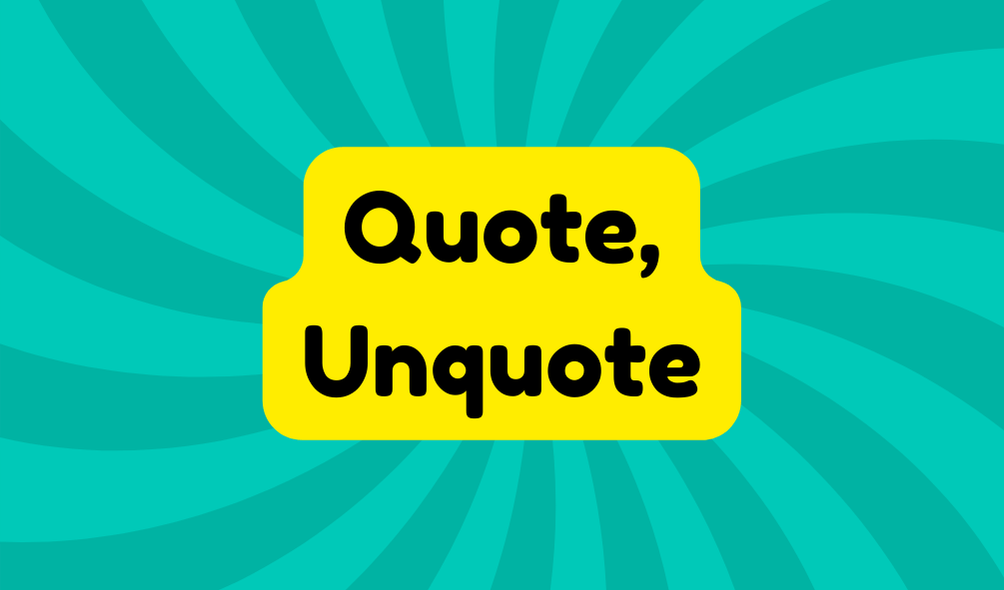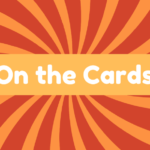The phrase "quote, unquote" signifies skepticism or irony when mentioning someone else's statement. Its origins lie in French expressions that emphasize a shift from straightforward quoting to a sarcastic context. For example, when someone says, "He is, quote, unquote, a genius," it casts doubt on that label. This usage has become relevant in modern conversation, enhancing dialogue with subtlety and nuance. By exploring further, one can uncover the complexities of this intriguing phrase and its applications.
Synonyms
When exploring synonyms for the phrase "quote, unquote," one might encounter a range of terms that also imply skepticism or irony. These paraphrase alternatives highlight the expressive nature of language, especially when intended meanings diverge from literal interpretations. Some examples include:
- "So-called"
- "Supposedly"
- "Allegedly"
- "In quotes"
- "As they say"
These ironic expressions not only enrich conversation but also cast doubt on the validity of the quoted statement. Understanding their usage can enhance communication, as they convey intent beyond mere words, enriching the tapestry of dialogue with nuance and skepticism.
Example of Sentences
The usage of the phrase "quote, unquote" finds expression in various contexts, often to underscore doubt or irony in someone's statement. This phrase serves as a vehicle for sarcastic expressions, thriving in cultural differences. Analyzing its application reveals:
- Misguided sentiments about "friendliness"
- Contrasted definitions of "love"
- Humor masked in polite dialogue
- Innuendos about expertise
- Elevating mundane information to extraordinary status
Such instances call attention to the nuances embedded in communication. By invoking this phrase, speakers highlight insincerity, reinforcing skepticism toward conveyed meanings, thereby encouraging thoughtful examination of expressed ideas, especially amid diverse cultural interpretations.
Origin
Communication often evolves through cultural exchanges, and the phrase "quote, unquote" is no exception. Its historical usage can be traced back to the French phrases "ouvrir les guillemets" and "fermer les guillemets," which literally mean "open quotes" and "close quotes." Over time, this linguistic evolution has transformed the original, straightforward translation into a sarcastic tool often employed in spoken English. This shift illustrates a cultural difference in how quotations are interpreted and delivered. While it embodies humor and irony, readers must recognize that such expressions may not translate seamlessly across languages or contexts, revealing the complexities of communication.
Collocations
Collocations, or commonly paired words and phrases, play a significant role in how "quote, unquote" is used in everyday language. These combinations often enhance communication, especially when delivering sarcastic expressions. The effect of "quote, unquote" relies heavily on context and tone, making it essential for effective use.
- Framing criticism
- Indicating irony
- Subverting expectations
- Highlighting contradictions
- Expressing disbelief
Quotation marks, when paired with this phrase, further emphasize insincerity. As speakers master these collocations, they navigate nuances in conversation, demonstrating a sophisticated grasp of language and its unpredictable nature.
How to Use in Everyday Language
Using "quote, unquote" in everyday language often requires a nuanced understanding of the context in which it is applied. This phrase often appears in informal communication, serving as a vehicle for sarcasm. When someone employs sarcastic phrases, it signals disbelief toward a quoted statement. It's essential to recognize the tone; otherwise, the intended meaning may be lost. Commonly mistaken for casual banter, its misuse can lead to misunderstandings. For effective use, one should adapt to the audience and setting, ensuring clarity. Ultimately, mastering this phrase enhances conversational depth, allowing for a playful yet discerning exchange in dialogue.
Why Is It Still Relevant Today?
In today's society, the phrase "quote, unquote" frequently appears in everyday conversations, reflecting its ongoing relevance. This expression's cultural relevance lies in its ability to adapt to the communication evolution occurring in contemporary discourse. By conveying irony or skepticism, it serves as a powerful tool for emphasizing insincerity or highlighting contradictions in statements. As public dialogue increasingly reflects diverse perspectives, the phrase continues to resonate, enabling speakers to navigate complex conversations effectively. Its use underscores how language evolves, demonstrating the significance of both verbal and non-verbal cues in conveying nuanced meanings and enhancing interpersonal understanding.







